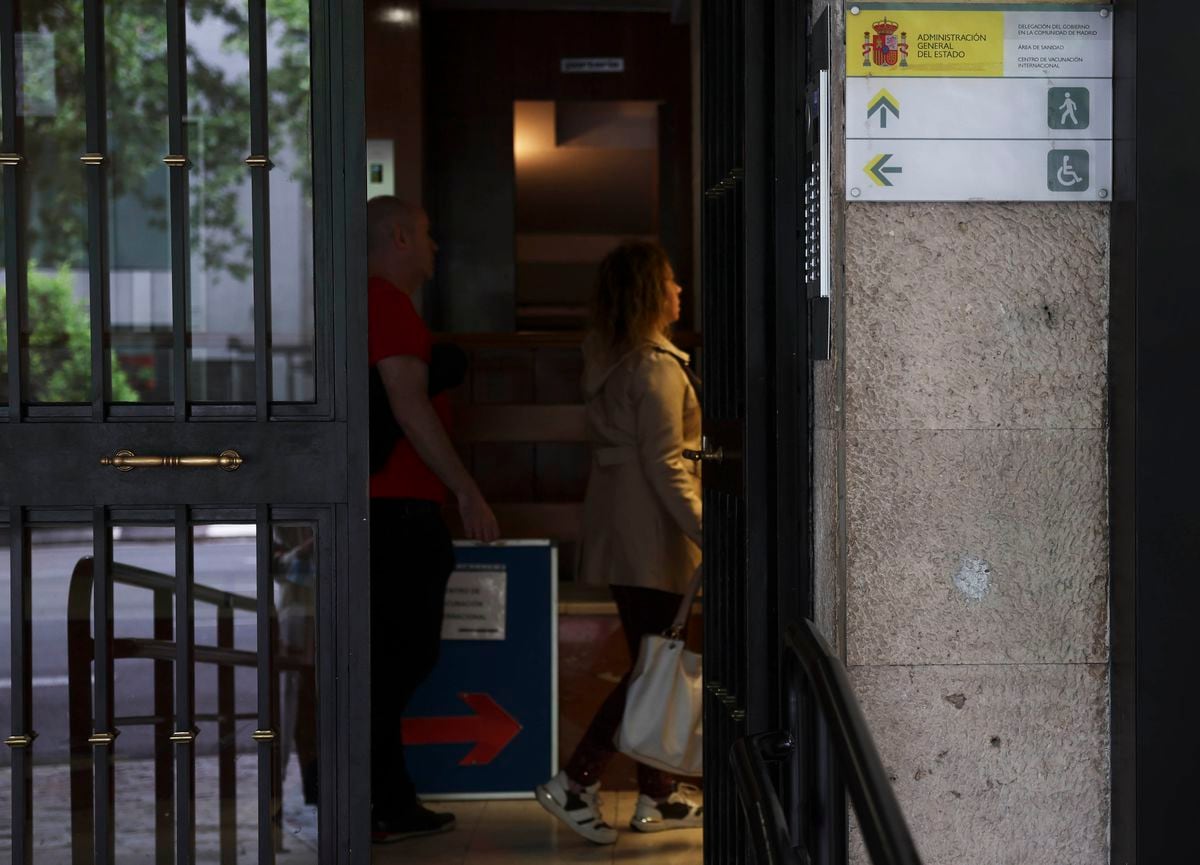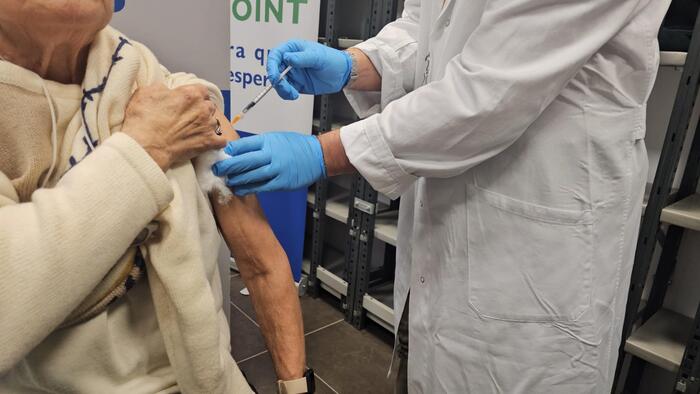Irene and her partner have had to change their travel plans for this summer. They planned to go to Colombia and, from there, fly to Brazil to make excursions through the Amazon. But they have cancelled this last stage. To cross that border, the yellow fever vaccine is mandatory and, although the trip is in July and they have been trying to make an appointment since May at an international vaccination center, they have not gotten one.
Some of the big Spanish cities have months of waiting. According to the website of the Ministry of Health, the first in its centers in Madrid and Barcelona is for mid-September. In Seville or Bizkaia they arrive a little earlier, in the second half of August. But these are too late for many who have not been vaccinated to arrive in time for their summer trips.
The administrations and hospitals consulted justify that demand usually rises when the summer dates approach. During the pandemic it had dropped drastically, which rebounded somewhat last year and has definitely exploded this year, when trips to more exotic places have returned massively, where vaccines such as yellow fever and others (cholera, hepatitis, measles ...) are more recommended. Some Southeast Asian countries, for example, were closed to tourists in 2022 and are now opening for the first time since covid exists.
The International Air Transport Association (IATA) conducted a survey that revealed that travel bookings from May to October were up 35% from last year. Travel tech company Kiwi has seen an even bigger increase this summer: more than double bookings than in 2022.
Jose Muñoz, ISGlobal researcher and head of the International Health Service at Hospital Clínic Barcelona, explains that travellers' units have a very seasonal activity and that, despite the reinforcements when summer approaches, it is impossible to cover all the demand. "It had been growing steadily since about 2005, with the rise of cheap flights and the fashion of travel. It peaked in 2019 and plummeted during the pandemic. For this year we expected the recovery, and in the absence of closing the season, we believe that we will have reached figures of that year, "he says.
Marta Arsuaga, a specialist in tropical medicine at the La Paz University Hospital in Madrid, has the same impression: "Last year mainly people traveled who had to spend the refunds due to the cancellations of the pandemic, but it was not massive. In 2023 we are seeing since Christmas the consultations full and the people very animated. And, since March, the consultations are very full. In May we were giving an appointment for August; Now, for October. Whoever has not planned ahead does not arrive."
The solution they have adopted is to refer users to other nearby provinces. In the case of Irene, she tried in all the adjoining with Madrid and none gave her an appointment before the trip. "Already in desperation I showed up at the Francisco Silvela vaccination center [in Madrid] at seven in the morning [opens at 9.00]. I had heard the rumor that if you went early you could make an appointment without prior reservation. But there they told me that this is no longer done, that I could spend all day there, but that they were not going to attend to me," he explains.
If you were to travel to Brazil from Spain, you would have no problem entering, but when arriving from Colombia, a country endemic for yellow fever, they require the vaccination certificate. As Muñoz explains, this obligation is not made for the health of tourists, but for the protection of the country itself. "They don't want you to come from an endemic area with the disease, get bitten by a mosquito and start spreading," he reasons.
There are very few countries that are prohibited from entering without this international vaccination certificate from any destination: about twenty, the vast majority in Africa. But many others are endemic and yellow fever immunization, without being mandatory, is recommended. It happens with much of Latin America and Africa itself.
Yellow fever is by no means the only health risk for international travelers. "There are vaccines such as hepatitis A that we give to practically everyone who travels [to tropical destinations], because here [in Spain] there is very little exposure, but outside it is abundant and it is a very safe vaccine whose effectiveness lasts a lifetime," says Muñoz.
The risk of other diseases, such as Japanese encephalitis, is restricted to very specific areas – in this case, Asia – so doctors assess how much time will pass and where the traveler will go to decide whether to puncture or not. "It is not the same as a person going to a five-star resort to another who is going to cooperate in a rural place," exemplifies Arsuaga.
To the arsenal of vaccines that already existed, this year one more has been added: dengue, which has been approved by the European Medicines Agency this year and has been available in travel medicine units since May. It is an injection that has shown an efficacy of 80% against this tropical disease transmitted by mosquitoes that can have serious complications.
Not just vaccines
Vaccines are only one of the tools used in the units, but not the only one. "We make an evaluation of the traveler, the area to which he goes, his previous illnesses, and there we assess what he needs. They can be vaccines, antibiotics, malaria prophylaxis or, for example, prescribing a diuretic if you go to a site more than 2,800 meters above the level of the disease to minimize the risks of altitude sickness, "adds Muñoz.
This doctor defends that the traveler's units also have the usefulness of advising users of the risks they may run in the areas they go to, what kind of precautions to take, and what to do in compromised situations, such as being stung by an animal. Or, as Arsuaga says, warn about the dangers of bathing in fresh water in certain destinations or recommend mosquito repellents that really work, "and not supermarket citronella bracelets that many carry."
Being very seasonal units, which concentrate most of the activity near the summer, they cannot cope. This specialist in tropical medicine recommends travelers to make an appointment as soon as they close the trip, the sooner the better, and do not leave it for the last minute.
And what happens if a sudden trip arises? In a vaccination center in Madrid, this Thursday, a nurse explained that if it is tourism there is nothing to do: they do not contemplate exceptions. And that if it is work and is duly justified, the specific situation can be studied, but it will depend on the will of the health workers of the health center in question.
In Irene's case, when she encountered obstacles to getting vaccinated, she wrote to the Ministry of Health, which replied that she was sorry for the inconvenience. "During the summer season the demand for appointments in the International Vaccination Centers is very high and sometimes they have difficulty responding in full. We provide the link with the International Vaccination Centers that exist throughout the national territory, in case you could get an appointment in one near the Community of Madrid, "said the department in an email.
"At the moment we only have the round trip ticket from Madrid to Bogotá. We have given up going to Brazil. But there we will visit sites like the Tayrona National Park, where the risk of yellow fever is high, and we will not be protected. We will not go to the Amazon, where it is even greater," he laments.
Subscribe to continue reading
Read without limits
Read more
I'm already a subscriber









